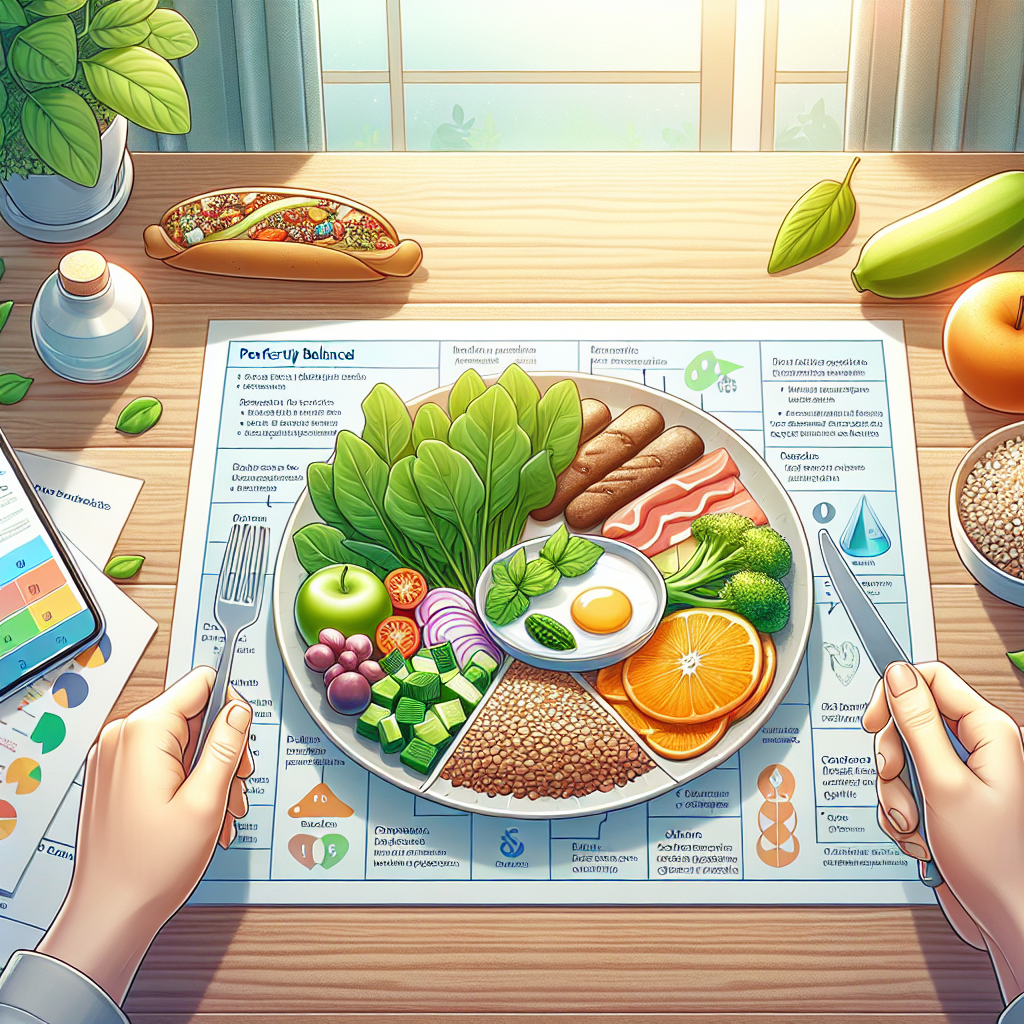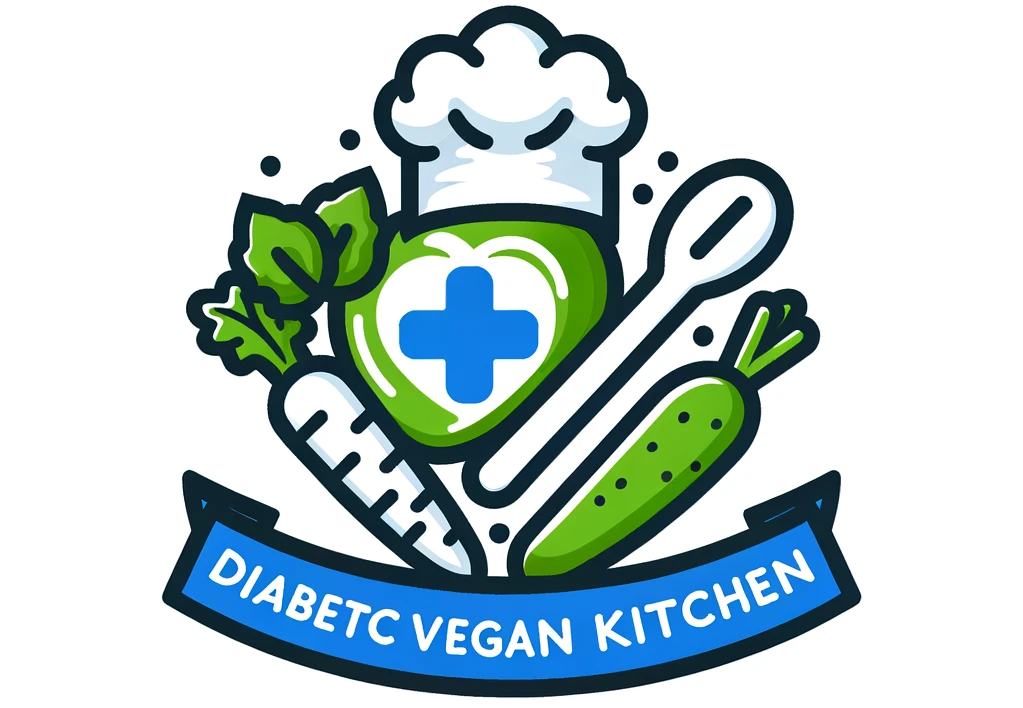If you’re living with diabetes, maintaining a healthy diet plays a crucial role in managing your blood sugar levels. But with so many food options available, it can be overwhelming to know which ones are best for you. That’s why we’ve compiled this article to give you a concise list of the 5 best foods for diabetics. By incorporating these delicious and nutritious options into your meals, you can take control of your diabetes and improve your overall well-being. So, let’s explore these fantastic foods together and discover how they can positively impact your health.

Whole Grains
Brown rice
Brown rice is a nutritious whole grain that is an excellent choice for diabetics. It has a low glycemic index, which means it doesn’t cause a quick spike in blood sugar levels. Brown rice is also rich in fiber, which helps regulate blood glucose levels and improves digestion. It is a versatile grain that can be used in a variety of dishes such as stir-fries, salads, and even desserts.
Quinoa
Quinoa is a trendy and nutritious whole grain that is perfect for diabetics. It is gluten-free and packed with protein, fiber, and essential nutrients. Quinoa also has a low glycemic index, making it a great choice for managing blood sugar levels. It can be used as a substitute for rice or pasta and can be incorporated into salads, soups, or as a side dish.
Oats
Oats are a staple in the diet of many diabetics due to their numerous health benefits. They are high in fiber and contain beta-glucan, a type of soluble fiber that helps regulate blood sugar levels. Oats also have a low glycemic index and can help improve insulin sensitivity. They can be enjoyed in various forms such as oatmeal, overnight oats, or added to baked goods for a nutritious boost.
Bulgur
Bulgur is a lesser-known whole grain that deserves more attention from diabetics. It is made from cracked wheat and is packed with fiber, vitamins, and minerals. Bulgur has a low glycemic index and can help stabilize blood sugar levels. It is commonly used in Mediterranean and Middle Eastern cuisines and can be used as a base for salads, pilafs, or added to soups.
Whole wheat bread
Choosing whole wheat bread over refined white bread is a smart choice for diabetics. Whole wheat bread is made from whole grains and contains more fiber, vitamins, and minerals compared to white bread. It has a lower glycemic index and can help keep blood sugar levels stable. Opt for whole wheat bread that is made from 100% whole grains and avoid those with added sugars or unhealthy fats.
Leafy Green Vegetables
Spinach
Spinach is a powerhouse of nutrients and is a fantastic choice for diabetics. It is low in calories and carbohydrates but high in fiber, vitamins, and minerals. Spinach also contains compounds that may help regulate blood sugar levels. It can be enjoyed in salads, sautéed as a side dish, or added to smoothies for an extra boost of nutrition.
Kale
Kale is another leafy green vegetable that deserves a spot on every diabetic’s plate. It is loaded with antioxidants, fiber, and essential nutrients. Kale is known for its anti-inflammatory properties and may help improve insulin sensitivity. It can be enjoyed in salads, added to soups, or baked into delicious kale chips.
Collard greens
Collard greens are a nutritious leafy green vegetable that is praised for its health benefits. They are packed with vitamins, minerals, and fiber while being low in calories and carbohydrates. Collard greens have a low glycemic index and can help regulate blood sugar levels. They are often used in Southern cooking but can be incorporated into various dishes like stir-fries, soups, or as a substitute for tortillas in wraps.
Swiss chard
Swiss chard is not only visually appealing but also a nutritious choice for diabetics. It is rich in vitamins and minerals, including magnesium, which is known for its ability to improve insulin sensitivity. Swiss chard can be sautéed, added to soups or stews, or used as a wrap for a healthy and diabetes-friendly meal.
Cabbage
Cabbage is a versatile and affordable vegetable that offers numerous health benefits for diabetics. It is rich in fiber, vitamins, and minerals while being low in calories and carbohydrates. Cabbage also contains compounds that may help reduce inflammation and improve insulin sensitivity. It can be enjoyed raw in salads, added to stir-fries, or cooked into delicious cabbage rolls.
Lean Proteins
Skinless chicken breast
Skinless chicken breast is a lean source of protein that is perfect for diabetics. It is low in fat and carbohydrates and provides essential amino acids for tissue repair and maintenance. Chicken breast can be grilled, baked, or added to salads or stir-fries for a satisfying and diabetes-friendly meal.
Turkey
Turkey is another lean protein option that diabetics can enjoy guilt-free. It is rich in protein and low in fat, making it an excellent choice for those looking to manage their blood sugar levels. Turkey can be roasted, grilled, or used as a substitute for ground meat in various dishes like chili or meatballs.
Fish
Fish, particularly fatty fish like salmon, mackerel, and tuna, are highly recommended for diabetics. They are rich in omega-3 fatty acids, which have been shown to reduce inflammation and improve heart health. Fish is also a great source of protein and can be grilled, baked, or broiled for a flavorful and healthy meal.
Tofu
Tofu is a plant-based protein option that is perfect for diabetics following a vegetarian or vegan diet. It is low in carbohydrates, cholesterol-free, and packed with essential amino acids. Tofu is versatile and can be used in various dishes such as stir-fries, salads, or blended into smoothies for an extra protein boost.
Beans
Beans, including black beans, kidney beans, and lentils, are a fantastic source of plant-based protein for diabetics. They are also rich in fiber, which helps regulate blood sugar levels and improves digestive health. Beans can be added to salads, soups, or used as a base for vegetarian chili for a satisfying and nutritious meal.
Healthy Fats
Avocado
Avocado is a healthy fat that is highly recommended for diabetics. It is rich in monounsaturated fats, which have been shown to improve insulin sensitivity and promote heart health. Avocado also contains fiber and essential vitamins and minerals. It can be enjoyed sliced on toast, added to salads, or blended into creamy guacamole.
Nuts
Nuts, such as almonds, walnuts, and cashews, are a great source of healthy fats and protein for diabetics. They are also packed with fiber, vitamins, and minerals. Nuts can help regulate blood sugar levels and improve heart health. They can be enjoyed as a snack, added to smoothies, or used as a topping for salads or oatmeal.
Seeds
Seeds, including chia seeds, flaxseeds, and pumpkin seeds, are nutrient-dense and provide a healthy dose of fats, fiber, and protein. They have a low glycemic index and can help stabilize blood sugar levels. Seeds can be sprinkled onto yogurt, added to baked goods, or used as a topping for salads or roasted vegetables.
Olive oil
Olive oil is a staple in the Mediterranean diet and is a great choice for diabetics. It is rich in monounsaturated fats and antioxidants, which have been shown to improve heart health and reduce inflammation. Olive oil can be used for cooking, dressing salads, or drizzled over roasted vegetables for a flavorful and healthy addition to any meal.
Salmon
Salmon is not only a great source of lean protein but also an excellent source of omega-3 fatty acids. It has been shown to reduce inflammation, improve heart health, and may even help improve insulin sensitivity. Salmon can be grilled, baked, or broiled and pairs well with a variety of flavors such as lemon, dill, or teriyaki sauce.

Low-Fat Dairy Products
Greek yogurt
Greek yogurt is a nutritious option for diabetics as it is high in protein and low in carbohydrates. It also contains probiotics, which can promote a healthy gut and improve digestion. Greek yogurt can be enjoyed on its own, added to smoothies, or used as a base for dips or sauces.
Skim milk
Skim milk is a low-fat dairy product that can be included in a diabetes-friendly diet. It is a good source of calcium, vitamin D, and protein while being low in fat and carbohydrates. Skim milk can be enjoyed on its own, added to coffee or tea, or used as a base for smoothies or soups.
Cottage cheese
Cottage cheese is a high-protein dairy product that is excellent for diabetics. It is low in fat and carbohydrates and can help promote feelings of fullness and satiety. Cottage cheese can be enjoyed on its own, added to salads, or blended into smoothies for an extra protein boost.
Low-fat cheese
Low-fat cheese can be a part of a healthy and balanced diet for diabetics. It is a good source of protein and calcium while being lower in fat and calories compared to full-fat cheese. Opt for low-fat cheese options such as mozzarella, feta, or cottage cheese and enjoy them in moderation.
Kefir
Kefir is a fermented dairy product that is packed with probiotics. It can help support a healthy gut microbiome and improve digestion. Kefir is low in fat and carbohydrates and can be enjoyed on its own or blended into smoothies for a nutritious and refreshing beverage.
Fruits
Berries
Berries, such as strawberries, blueberries, and raspberries, are a great fruit choice for diabetics. They are low in calories and carbohydrates while being packed with antioxidants, fiber, and essential nutrients. Berries have a low glycemic index and can help regulate blood sugar levels. Enjoy them on their own, added to oatmeal or yogurt, or blended into smoothies for a delicious and nutritious treat.
Citrus fruits
Citrus fruits, including oranges, grapefruits, and lemons, are packed with vitamin C and other essential nutrients. They have a low glycemic index and are rich in fiber, making them an excellent choice for diabetics. Citrus fruits can be enjoyed on their own, juiced, or used in salads or marinades for a burst of refreshing flavor.
Apples
Apples are a classic and nutritious fruit that is diabetic-friendly. They are rich in fiber, vitamins, and antioxidants. Apples have a low glycemic index and can help regulate blood sugar levels. Enjoy them as a snack, sliced and added to salads, or baked for a warm and comforting dessert.
Pears
Pears are another fruit option for diabetics due to their low glycemic index and high fiber content. They are also rich in vitamins and minerals. Pears can be eaten raw, added to salads, or baked for a sweet and healthy dessert.
Cherries
Cherries are not only delicious but also a great choice for diabetics. They have a low glycemic index and are packed with antioxidants and fiber. Cherries can be enjoyed on their own, added to smoothies, or used as a topping for yogurt or oatmeal.

Legumes
Lentils
Lentils are a nutritious source of protein and fiber for diabetics. They have a low glycemic index and can help regulate blood sugar levels. Lentils can be cooked and added to soups, stews, or salads for a filling and nutritious meal.
Chickpeas
Chickpeas, also known as garbanzo beans, are a versatile legume that is perfect for diabetics. They are high in protein and fiber and can help stabilize blood sugar levels. Chickpeas can be used to make hummus, added to salads or roasted for a crispy and nutritious snack.
Kidney beans
Kidney beans are a great source of plant-based protein and fiber for diabetics. They have a low glycemic index and can help regulate blood sugar levels. Kidney beans can be added to chili, soups, or used to make vegetarian burgers for a hearty and diabetes-friendly meal.
Black beans
Black beans are rich in protein, fiber, and essential nutrients. They have a low glycemic index and can help control blood sugar levels. Black beans can be added to salads, soups, or used in Mexican-inspired dishes like tacos or burritos for a satisfying and nutritious meal.
Peas
Peas, including green peas and snow peas, are a nutritious vegetable that can be included in a diabetes-friendly diet. They are packed with fiber, vitamins, and minerals while being low in calories and carbohydrates. Peas can be added to stir-fries, salads, or blended into soups for a nutritious and vibrant addition to any meal.
Non-Starchy Vegetables
Broccoli
Broccoli is a non-starchy vegetable that is packed with vitamins, minerals, and fiber. It has a low glycemic index and can help regulate blood sugar levels. Broccoli can be enjoyed steamed, roasted, or added to stir-fries, salads, or soups for a nutritious boost.
Cauliflower
Cauliflower is a versatile vegetable that is perfect for diabetics. It is low in calories and carbohydrates but high in fiber and essential nutrients. Cauliflower can be used as a substitute for rice or mashed potatoes, roasted as a side dish, or added to soups and stews for a nutritious and delicious addition to any meal.
Bell peppers
Bell peppers, whether red, yellow, or green, are a colorful and nutritious choice for diabetics. They are low in calories and carbohydrates but high in vitamins and antioxidants. Bell peppers can be stuffed, added to salads or stir-fries, or enjoyed raw as a crunchy and refreshing snack.
Mushrooms
Mushrooms are not only flavorful but also a healthy choice for diabetics. They are low in calories and carbohydrates but high in fiber and essential nutrients. Mushrooms can be sautéed, grilled, or added to soups, stews, or omelets for a nutritious and versatile addition to any meal.
Brussels sprouts
Brussels sprouts are a nutritious cruciferous vegetable that is great for diabetics. They are low in calories and carbohydrates but high in fiber, vitamins, and minerals. Brussels sprouts can be roasted, sautéed, or added to salads or stir-fries for a delicious and nutritious side dish.

Cinnamon
Ceylon cinnamon
Ceylon cinnamon, also known as “true” cinnamon, is a spice that has been used in traditional medicine for its potential health benefits. It has been shown to improve insulin sensitivity and may help control blood sugar levels. Ceylon cinnamon can be used in baked goods, added to oatmeal or smoothies, or even brewed into a warm and comforting tea.
Cassia cinnamon
Cassia cinnamon is another type of cinnamon that is commonly used in cooking. It has a stronger and slightly sweeter flavor compared to Ceylon cinnamon. Cassia cinnamon may also have potential health benefits for diabetics, including improving blood sugar control. It can be used in a variety of recipes, including desserts, spicy dishes, or even to flavor coffee or tea.
Ground cinnamon
Ground cinnamon is a convenient and versatile form of cinnamon that is perfect for diabetics. It can be easily incorporated into various recipes, including baked goods, smoothies, or sprinkled onto oatmeal or yogurt for a delicious and aromatic flavor.
Cinnamon sticks
Cinnamon sticks are the whole form of cinnamon and can be used in cooking or brewing beverages. They can be added to stews, soups, or used to infuse flavor into hot drinks like tea or mulled wine. Cinnamon sticks provide a slow release of flavor and aroma, making them a perfect addition to any warm and comforting dish.
Cinnamon tea
Cinnamon tea is a soothing and flavorful beverage that can be enjoyed by diabetics. It can be brewed by steeping cinnamon sticks or using ground cinnamon in hot water. Cinnamon tea may have potential health benefits such as improving insulin sensitivity and reducing inflammation. Enjoy a cup of cinnamon tea as a comforting and diabetes-friendly alternative to sugary beverages.
Garlic
Fresh garlic
Fresh garlic not only adds flavor to dishes but also provides potential health benefits for diabetics. It contains compounds that may help improve insulin sensitivity and control blood sugar levels. Fresh garlic can be used in a variety of savory dishes, including stir-fries, sauces, or roasted with vegetables for a delicious and aromatic addition.
Garlic powder
Garlic powder is a convenient and versatile option for adding garlic flavor to dishes. It can be used in marinades, rubs, or sprinkled onto roasted vegetables for a quick and easy flavor boost. While it may not provide the same health benefits as fresh garlic, it can still add a delicious garlic flavor to your meals.
Garlic cloves
Garlic cloves are the individual segments of a garlic bulb and can be used in a variety of dishes. They can be chopped, minced, or pressed to release their aromatic flavor. Garlic cloves can be sautéed, added to sauces, or used in marinades for a rich and robust garlic taste.
Roasted garlic
Roasted garlic is a delicious and mellow version of garlic that is perfect for diabetics. It adds a sweet and nutty flavor to dishes and can be spread onto bread, added to mashed potatoes, or mixed into sauces for a rich and creamy taste. Roasted garlic may also have potential health benefits, including improving heart health and reducing inflammation.
Garlic supplements
Garlic supplements are a concentrated form of garlic that is available in various forms such as capsules or tablets. They may provide potential health benefits for diabetics, including improving insulin sensitivity and reducing inflammation. However, it is important to consult with a healthcare professional before starting any supplements to ensure they are safe and appropriate for your specific needs.
In conclusion, maintaining a healthy diet is crucial for diabetics, and these five food categories – whole grains, leafy green vegetables, lean proteins, healthy fats, and low-fat dairy products – offer a wide range of options that are not only delicious but also beneficial for managing blood sugar levels and promoting overall health. Incorporating these foods into your daily meals can help you control your diabetes and lead a balanced and vibrant life. Remember to consult with a healthcare professional or a registered dietitian to create a personalized meal plan that fits your individual needs and preferences. Eating well can be enjoyable, and with the right choices, you can take charge of your diabetes and live a fulfilling and healthy life.

